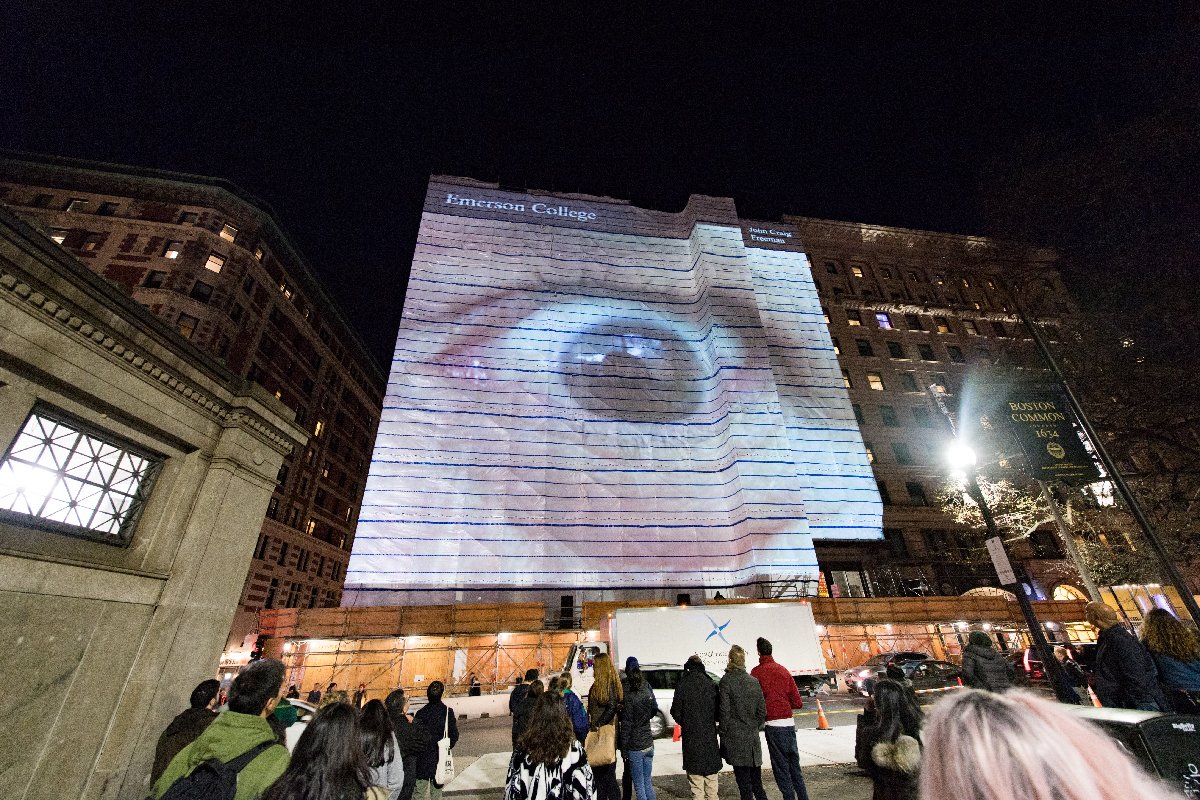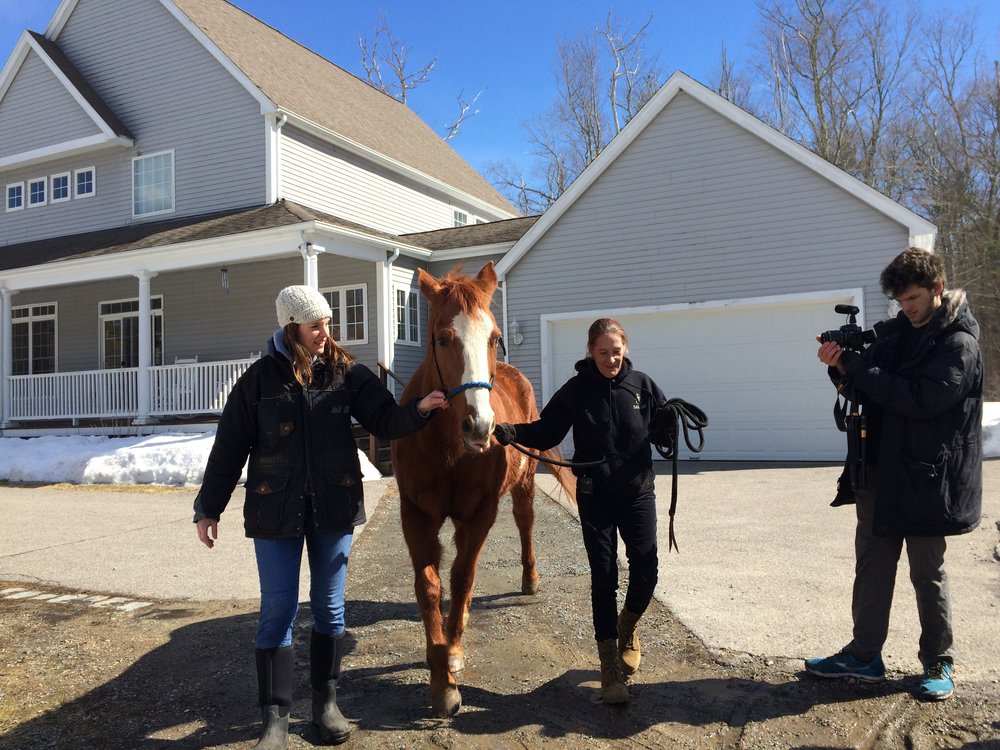Alumnus Filmmaker: “We Need to Open Up the Door” to People with Disabilities

Alexander Freeman ’14 set out his senior year at Emerson College to make a documentary about a veteran who returns home from war with a physical disability.
He ended up with a very different story, a number of industry awards, and a distribution deal to share his film across multiple online platforms.
The Wounds We Cannot See is the story of a former U.S. Navy Airman who was violently raped during her service in the late 1980s and has struggled with mental illness, addiction, and depression ever since. On June 30, it will be available on Amazon Video and Google Play, with a release on iTunes in late July. So far, it has picked up 11 festival awards, including Best Documentary Feature at the Long Beach Indie International Film, Media, and Music Festival; Best Director of a Documentary Feature and Best Original Music/Score from the Los Angeles Independent Film Festival; and an editing award from the Hollywood International Independent Documentary Awards.
“I feel honored about that,” said writer/director/producer Freeman, who has cerebral palsy and focuses on making films about disability issues. “Most filmmakers are lucky if they get just one.”
While still a film student at Emerson, Freeman made The Last Taboo, about people with disabilities and sexual and romantic relationships. The documentary took a few awards of its own and has been used by universities and nonprofits as a teaching tool.
He followed that film by winning a grant from the HSC Foundation to make The Soldier, which was to be about a war veteran who adjusts to life with a disability, a theme he explored in his 2013 short narrative film, A Life Imperfect. That idea didn’t pan out, and for six months, Freeman was left without a subject—until he met the host of a local radio show for veterans. Gregg Brasso told him he had to meet a woman named Nancy Ross, who “has a story you need to hear.”
“I met with her…and after about one hour I knew I had a film and I had a subject,” Freeman said. “Her story was so captivating that I decided this had to be a film.”
Freeman made a short film with Ross called Dark into Light, but the more he talked to Ross, the more he realized that a short film wouldn’t do her story justice. Ross had told her story many times before but hadn’t delved deeply into the trauma she experienced. Freeman said it took time to build Ross’s trust.
“I spent many days on the phone just talking to her,” Freeman said. “And it was really exciting because every day I would find out something new. And so I spent many months just getting to know her.”
The Wounds We Cannot See was shot on Cape Cod, where Ross lives, during the winter of 2015—the worst in recent Massachusetts history. Freeman dragged his crew—including Emerson alumni Sarah LaFlamme ’15 and Jake Nadeau ’15, associate producers; and directors of photography Brandon Golden ’17 and Jeffrey G. Rosenberg ’15—down to the Cape in the bitter cold and snow, and shot over 30 hours of film over two days. The film’s editor, Ryan Egan ’13, is also an Emerson alumna.
“If it weren’t for my incredible crew, who really made this film happen, I don’t think it would be what it is today,” Freeman said of his fellow Emerson alumni and Polish composer Miro Kepinski.

Freeman said he likes to “dig deep” to find the humanity in his subjects, whether he’s directing actors in a narrative film or subjects for a documentary. He prefers documentary, he said, because it’s not scripted, and because he feels that he has a responsibility to be a “truth teller” and engage people in a topic—especially if it’s a difficult one.
“What people have to remember about addiction and mental illness is that it is not something that you choose. It’s just part of you, and we need to open up the door and help people instead of pushing them away,” he said.
As a filmmaker with cerebral palsy, opportunity for people with disabilities is an important issue for Freeman. He said going forward, he sees himself working as a producer, assistant director, or event organizer under contract in Los Angeles, which would enable him to do what he loves and get paid, while still working on his own projects.
Freeman credits his alma mater for his success so far.
“I would not be where I am today without Emerson and what Emerson prepared me for,” Freeman said. “Emerson is the kind of education you can’t get anywhere else, because they teach you what you need to know in ‘the real world.’ I know there’s a long list of the best film schools, but I would say Emerson is number one.”

Categories